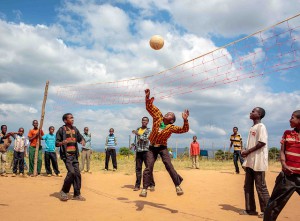Economic, social and cultural rights (general)

Social protection floors have great potential to facilitate the enjoyment of several economic and social rights, including the rights to social security, health, food, housing, education and water, in accordance with States’ obligations under international human rights law. When used as they are intended —as minimum levels rather than an optimum levels of protection — social protection floors can contribute significantly to gender equality and the realization of basic, essential levels of the rights, including the rights to social security, food, health and education, especially for marginalized groups.
Human rights norms and social protection floors complement one another. National social protection floors’ success in achieving gender equality, minimum levels of economic, social and cultural rights and protecting vulnerable groups , such as children, older persons, persons with disabilities, informal workers and non-nationals, will depend on whether they are established and implemented according to human rights standards and principles.
Photo credit: “Pupils participate in a physical education class at Tutis Primary School in Oromia State of Ethiopia” by UNICEF Ethiopia (CCBY 2.0 via Flickr).
The Right to Decent Work and Freedom of Association in Peru
This is the first judgment delivered by the Inter-American Court of Human Rights that recognizes the direct enforceability of economic, social and cultural rights (ESCR) under Article 26 of the American Convention on Human Rights. In this case, a labor leader successfully asserted a claim against Peru for violating his rights to work, to freedom […]
State and Corporate Accountability in the Democratic Republic of Congo
Summary: In 2004, a small number of lightly armed rebels tried to take control of Kilwa, a remote fishing town in the Democratic Republic of Congo (Congo). About 50 km away from Kilwa there is a copper and silver mine, where Anvil Mining Company (Anvil Mining), a small Australian-Canadian mining company, had mining operations. Notably, […]
The Right to Land and Livelihoods in India
This case focuses on the compulsory acquisition of land by the State of West Bengal for a car manufacturing unit under the auspices of “public purpose”. The Supreme Court of India determined that the acquisition had not been for a public purpose, but for the benefit of a company, and ordered the return of the […]
Women’s Property and Inheritance Rights in Tanzania
Nature of the Case In views adopted under the Optional Protocol to the Convention on the Elimination of All Forms of Discrimination against Women, the Committee on Elimination of Discrimination against Women held the United Republic of Tanzania accountable for multiple violations of women’s rights, particularly as relates to their inheritance and property rights. Summary […]
COVID-19 Recovering Rights: Topic Seven | Income Support to Protect Rights
Main Takeaways Urgent measures are necessary to provide sufficient income to millions of people who cannot work due to pandemicrelated restrictions, so that they can still meet their basic needs. Many of these workers lack social and labor protections. Basic income schemes vary in type, design and implementation. Those that are universal, durable and unconditional […]
Toward more inclusive measures of economic well-being: Debates and practices
This paper reviews debates and practice around the conventional and alternative measures of economic well-being. It presents alternative aggregate indicators, broadly referred to as “Beyond GDP”, that track non-market contributions to well-being, including household production and ecosystem services. Evaluating the major contending measures–Genuine Progress Indicator, Human Development Index, Happiness/lifeevaluation index, Happy Planet Index, the OECD’s […]
Women at work: addressing the gaps
Despite progress in education and health worldwide, women still face significant barriers to engage as full economic citizens. There are significant gender gaps in wages and labour market participation. In many cases, women also face barriers and lack the assets needed to become entrepreneurs. These inequalities remain large, persistent and pervasive in many parts of […]
Universal Periodic Review Sexual Rights Database
The Universal Periodic Review of the United Nations Human Rights Council is a process to review each of the 193 Member States of the UN on its entire human rights record every four and a half years. This database allows you to access and search all the sexual rights related recommendations and references made during […]
Human Rights in Times of Austerity (Brazil)
One year into Brazil’s 20-year constitutional cap on public spending, the Center for Social and Economic Rights, the Instituto de Estudos Socioeconômicos (INESC) and Oxfam Brazil have presented new empirical findings to the Brazilian Congress that illustrate austerity’s already severe impact on basic social and economic rights in the areas of food security, health and […]
Rethinking Transitions: economic and social justice in societies emerging from conflict
Transitions bring the opportunity to rewrite the social contract between state and society, to restructure institutional architecture and tackle the political, social and economic deficits that contribute to social exclusion and deprivation. In transitions, economic and social rights have the potential to translate people’s social justice claims into normative and enforceable entitlements through constitutional processes […]
Premier Rapport Mondial sur les Droits Economiques et Sociaux et Culturels
Ce premier rapport 2016 sur la situation des droits économiques, sociaux et culturels de 42 pays est une initiative de L’Observatoire international sur les droits économiques, sociaux et culturels (ObIDESC). Créé par le Collège Universitaire Henry Dunant, en collaboration avec l’OIDEL et la chaire UNESCO de l’Université de La Rioja il a pour objectif de […]

